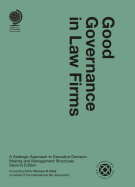
This work, founded by Dirk Uwer and Daniel Zimmer and now in its second edition, deals with the technological aspects and challenges, economic viability, networks and initiatives, an overview of CCS/CCU projects and national strategies in Scandinavia, the United Kingdom, the Netherlands, Eastern Europe, the United States, Canada and the Middle East, as well as the legal sources. The work deals with international law as well as EU law and its national implementation in the member states.
Both authors work for the highly renowned law firm Hengeler Mueller in Düsseldorf. Here they advise domestic and foreign companies on energy and antitrust law issues. They support investors and energy supply companies in M&A transactions and advise these companies on regulatory issues at all market levels. Against this background, both authors are particularly qualified for the topic they are working on.
In connection with the technological aspects and challenges, the work discusses the separation of CO2 and its capture. The authors discuss pre-combustion, post-combustion, the oxy-fuel process, the extraction of CO2 from the air and the transportation and storage of CO2. They also discuss the use of CO2. This includes the production of synthetic fuels or plastics or the use of CO2 in the food and beverage industry or agriculture.
When examining CCS and CCU as viable business models, the authors address the economic costs as a key issue for the implementation of viable business models. They distinguish between the costs of capturing CO2 and its transportation and storage. They also discuss the influence of emissions trading on the economic viability of business models. They rightly point out that CCS/CCU technologies can only be expected to be introduced on a large scale from a price of at least EUR 100 per EUA. Against this background, national legislative approaches in Germany that rely more on CO2 avoidance via legal-administrative channels than via trading in emissions certificates are problematic. The comments on carbon contracts for difference are interesting and helpful. The authors rightly see this instrument as an approach that could improve the price level, stability and competitiveness of CCS/CCU technologies. The authors also address the issue of public funding. While the USA relies on tax incentives with its Inflation Reduction Act (IRA), the European Union has created a thick network of funding programs and instruments, which entails very high bureaucratic costs for potential investors. The authors therefore rightly conclude that this European path of technology transformation will not lead to the acquisition of bank financing or the use of PE.
An important focus of the work is an overview of 30 CCU/CCS projects that are already in operation, 11 other projects that are in the construction phase and a further 153 planned development projects. The authors provide a good and concise overview of such projects in Scandinavia, the United Kingdom, the Netherlands, Eastern Europe, the United States and Canada.
At the heart of the work is an overview of the legal sources of international, supranational, national and local law. In international law, the authors refer to UNCLOS (1982), the London Protocol of 2006 and the OSPAR Convention of 1992. The London Protocol is therefore of central importance, as it supplements the international legal order for the protection of the marine environment. The central standards of the precautionary approach and the polluter pays principle (Art. 3 London Protocol) thus also form the framework for supranational (EU) regulations and national legislation. In EU law, the explanations focus on the EU Carbon Storage Directive and the hydrogen strategy as well as sustainable carbon cycles. The presentation of national law is naturally dominated by comments on the national legal system. The Carbon Storage Act, which in 2012 effectively resulted in a ban on all CCS/CCU technology, is particularly noteworthy here. The Act is currently being reissued, which, according to the German government, is intended to enable the use of these technologies for the purpose of decarbonization.
The work is successful in every respect and offers the application-oriented practitioner a very good overview of the technological, economic and legal framework of this forward-looking technology, which is indispensable for climate protection. It is to be recommended to any user approaching the subject of CCS/CCU from an economic, technical or legal perspective.
,





